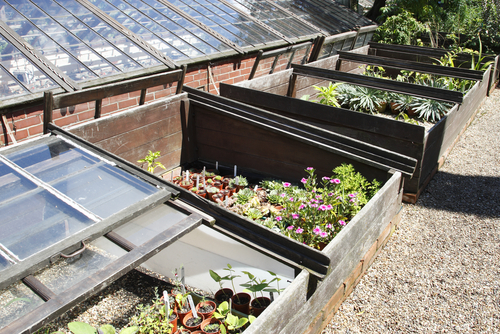 Not everyone is lucky enough to live in a temperate climates where they can create a year-round garden. Sometimes, we have to make do with what we have.
Not everyone is lucky enough to live in a temperate climates where they can create a year-round garden. Sometimes, we have to make do with what we have.
Using a cold frame is a great way to get a head start on starting your garden or used as a way to extend your growing season during those cooler months.
Cold frames are essentially a mini greenhouse where you utilize a transparent top (glass or plastic) to allow sunlight to come into the structure and prevent the heat to escape via convection that would otherwise occur, particularly at night. They create a microclimate that provides warmer air and soil temperature, as well as provides young plantlings with shelter from wind. In cold-winter or wet regions, these characteristics allow plants to be started earlier in the spring, and to survive longer into the fall and winter. The most simplistic way to create a cold frame to add a piece of glass over a box. However, the larger the cold frame is, the more plants you can grow.
Here are a few tips to keep in mind:
- Location of the cold frame can maximize plant growth
- Set the frame on bricks to limit the exposure to soil and moisture
- Angling the top of your cold frame towards the south will help you collect more sunlight for your plants
- Cold frames should be at least 12-18 inches deep in order to grow vegetables
- Warning: be wary of window frames with lead paint. Lead paint can seep into soil where your plants grow. Tests for lead-based paints are available at hardware stores.
Salvaging windows or plastic sheeting is a great way to make due with supplies you already have on hand. Plastic will not insulate the plants as much as glass will. Further, glass will create a stronger structure. It will especially be good to use glass for areas where large amounts of snow occur.
There are different ways to build a cold frame and some are more permanent structures, and some cold frames can be moved for a temporary location. Therefore, do some research on your part to find which way is best for you.
